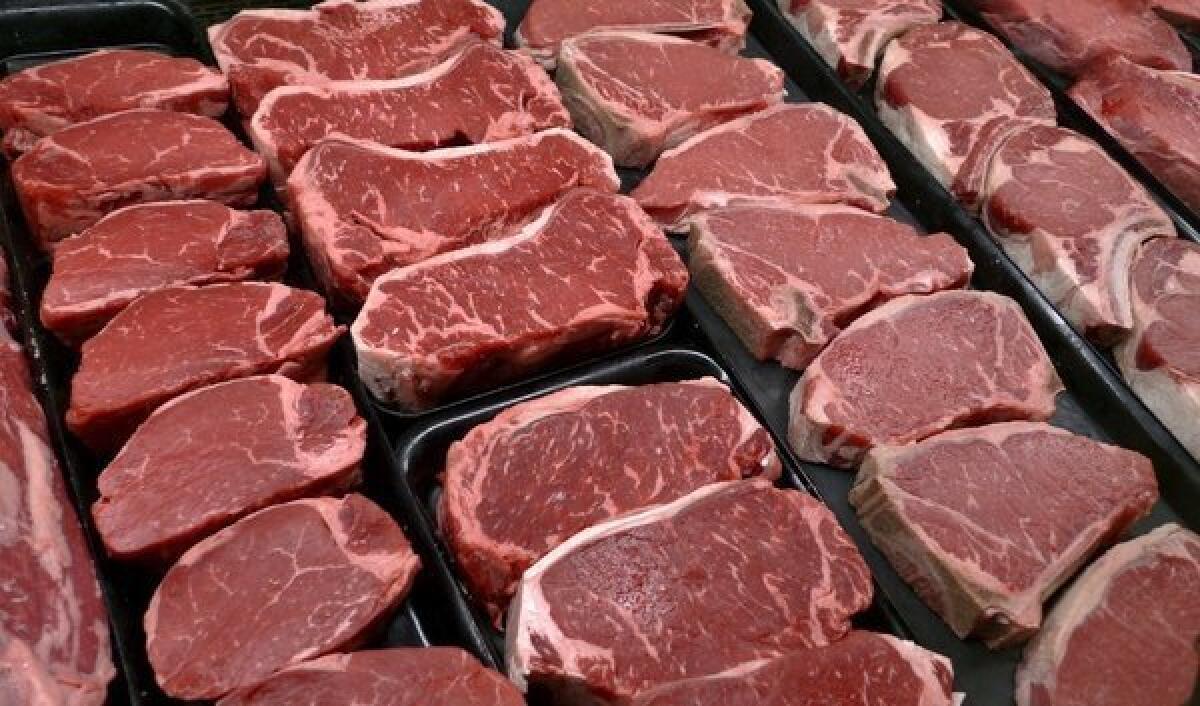Red meat and heart disease link: Not all about the fat?

- Share via
The long-established link between red meat consumption and heart disease may have less to do with the fat in the meat than many have assumed, researchers said Sunday.
Writing in the journal Nature Medicine, a team led by Dr. Stanley Hazen of the Cleveland Clinic in Cleveland pointed instead to the nutrient L-carnitine -- a substance involved in the digestion of fat and also a popular dietary supplement -- as a key artery-hardening culprit.
When people (and mice) consume L-carnitine, the scientists found, certain microbes in the gut step in and metabolize the compound, creating another chemical known as trimethylamine-N-oxide, or TMAO -- which, in turn, seems to play a key role in promoting cardiovascular disease by altering the way the body processes cholesterol.
“Carnitine metabolism suggests a new way to help explain why a diet rich in red meat promotes atherosclerosis,” Hazen said in a statement.
To probe the link between L-carnitine and heart disease, the team conducted a series of experiments (abstract available for free) in people and in mice. One of their tests involved feeding people — omnivores and vegetarians — L-carnitine (in steak and in supplements) and examining the results, when intestinal microbes were intact and after administering an antibiotic to wipe out the bacteria. The team also examined microbial communities in human feces, and looked at L-carnitine and TMAO concentrations in the blood of a large group of people undergoing elective cardiac evaluation.
They found that TMAO was linked to heart disease, and that L-carnitine consumption led to TMAO production — but only in people with certain gut microbes. Vegans and vegetarians did not produce as much TMAO as meat eaters after ingesting carnitine because they didn’t have as many of the harmful bacteria in their guts as meat eaters do, Hazen said.
“The bacteria living in our digestive tracts are dictated by our long-term dietary patterns,” he said. “Vegans and vegetarians have a significantly reduced capacity to synthesize TMAO from carnitine, which may explain the cardiovascular health benefits of these diets.”
The scientists also suggested that people might want to think twice before taking carnitine, calling for further research into the safety of the dietary supplement.
Follow me on Twitter: @LATerynbrown




